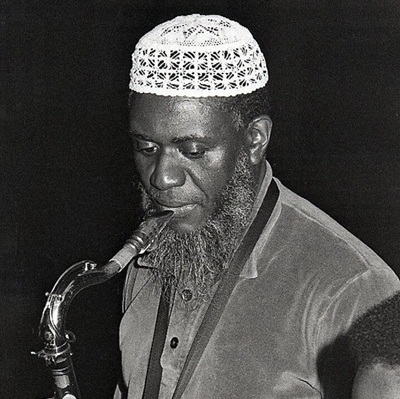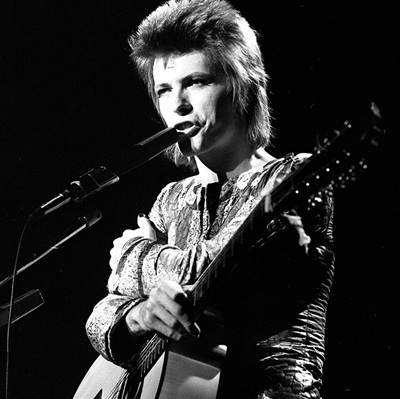_____
Joe Cocker, the flamboyant British rocker who died yesterday at the age of 70, was best known for his gravelly voice and charismatic onstage personality, but his career was especially noteworthy due to his successful model of interpreting popular songs of the day. The most obvious example – the Beatles’ “With a Little Help From My Friends” performed before hundreds of thousands at Woodstock in 1969 – was his signature career achievement, a performance Paul McCartney yesterday called “mind-blowing,” one that he was “forever grateful for him for having done that.” One could make the case that Cocker’s appearance at Woodstock and his filmed performance of that tune was indeed a defining moment of the rock era.
Cocker also successfully remade Arthur Hamilton’s “Cry Me a River,” a 1953 torch song originally composed for Ella Fitzgerald to sing in Pete Kelly’s Blues, the Jack Webb film in which Peggy Lee portrayed an alcoholic jazz singer – a role she was nominated for an Oscar for Best Supporting Actress. The piece wound up on the cutting room floor and was subsequently offered around to other producers – including, according to several sources, Columbia Records’ head of A&R Mitch Miller, who turned it down because he objected to the line “You told me love was too plebeian.”
It wound up at Liberty Records (eventual home of The Chipmunks), where chairman Simon Waronker hung his hopes for his fledgling label on sensual vocalist Julie London. In addition to London, the 1955 recording featured Barney Kessel on guitar and Ray Leatherwood on bass, but it was her performance of it in the 1956 film The Girl Can’t Help It that exposed the piece as a popular song, hitting #9 on Billboard. Ella eventually recorded it in 1961 (on the album, Clap Hands, Here Comes Charlie!), and renditions by the likes of Barbara Streisand, Diana Krall, and Michael Buble have kept the piece relevant over time.
Hard to imagine a song with this pedigree would end up up in the hands of Cocker, who recorded the song live during 1970’s legendary Mad Dogs and Englishmen tour, which included fellow flamboyant Leon Russell.
Here are three incredibly diverse versions of this song:
A 1964 televised performance of Julie London — lounging on a settee in her plunging cocktail dress
From 1975, Ella Fitzgerald performs the song with guitarist Joe Pass
Joe Cocker’s 1970 rendition, accompanied by Leon Russell
Cocker’s official 45 version of the song from the Mad Dogs and Englishmen album
As a bonus, here is Cocker’s Woodstock performance of “With a Little Help From My Friends”
*
R.I.P Joe Cocker
Joe Cocker’s New York Times obituary by Ben Sisario
_____
The lyrics to “Cry Me a River,” by Arthur Hamilton
Now you say you’re lonely
You cried the long night through
Well, you can cry me a river, cry me a river
I cried a river over you
Now you say you’re sorry
For being so untrue
Well, you can cry me a river, cry me a river
I cried, a river over you
You drove me, nearly drove me, out of my head
While you never shed a tear
Remember, I remember, all that you said
You told me love was too plebeian
Told me you were through with me and
Now you say, you say you love me
Well, just to prove that you do
Come on and cry me a river, cry me a river
‘Cause I cried a river over you
You drove me, nearly out of my head
While you never shed a tear
Remember, remember, all that you said
Told me love was too plebeian
Told me you were through with me and
Now, now you say you love me
Well, just to prove you do
Come on and cry, cry, cry me a river, cry me a river
‘Cause I cried a river over you
If my pillow could talk, imagine what it would have said
Could it be a river of tears I cried in bed?
So you can cry me a river
Daddy, go ahead and cry that river
‘Cause I cried, how I cried a river over you
How I cried a river over you
















































I liked the article. It is on the spot!
I liked the article. It is on the spot!
I remember Julie London’s rendition of it: gorgeous! I don’t remember Joe Cocker’s, but he could make anything sound special: so could Ella.
Cocker’s early career was simply amazing…He was so successful making other people’s songs sound different (and in many cases better) than the original. His spirit is missed.
I remember Julie London’s rendition of it: gorgeous! I don’t remember Joe Cocker’s, but he could make anything sound special: so could Ella.
Cocker’s early career was simply amazing…He was so successful making other people’s songs sound different (and in many cases better) than the original. His spirit is missed.
Excellent article. “Cry Me A River” as arranged by Leon Russell and interpreted by Joe Cocker is one of my favorite collaborations from this duo. I love how the “poor me” of the torch song version is converted to rage, and in the falsetto section, mockery. No one was more soulful than Cocker, but when that voice was unleashed in passionately emotional power songs like this one, it could rip holes in your soul instead.
I have one minor objection. Leon Russell could be seen as “flamboyant” but never Joe Cocker. He was just a working lad from Sheffield who for most of his career performed in t-shirts (and early on rocked the tie dye like nobody’s business). He was humble, introverted and soft-spoken offstage. He was Everyman, and that’s why we identified with him and loved him so.
No one was more soulful than Cocker? Um, no. What about Otis Redding? Wilson Pickett and many many other Black soul singers. Get real, sister.
Leon Russell could be seen as “flamboyant”? Um, no. “I tend to freeze up around any situation that involves people watching me.,’ he said of a humiliating childhood experience. He struggled with either bipolar depression, paranoia or Asperger’s syndrome, contributing to crippling bouts of stage fright. When he and Rita Coolidge took the long drive from Memphis to their new home in LA, “he wouldn’t get out of the car. He was so afraid of people looking at him,” he said. I dare you to find a live performance in which he is in any way “flamboyant”. Liberace was flamboyant, not Leon. Get real, sister.
Joe Cocker’s version of Cry Me a River was different from any other in a way that–to my ears–embody the spirit of rock music in such a great way that it’s just not enough to dryly comment that Cocker covered the song. He covered the hell out of it. This great band took a classic torch song–that was known for making neglected lovers cry–and took all the sadness out of it, effectively making it proclaim that although you could sit and cry with a broken heart, you could also rock the heartbreak away. It shows the healing power of rock music in a truly wonderful way. It’s music to pick you up, rather than let you sit and weep.
I’ll stop writing comments about rock music only after I’m sure people get it. Rock is that friend that will get you up to shake off your blues, and there’s no finer example than Cry Me a River as performed by Joe Cocker and his band.
I prefer to refer to it as Joe Cocker’s version.
I prefer to refer to it as Leon Russell’s remake of a 1950’s torch song.
His band? I think you mean Leon Russell’s band. LR put the band together and arranged the song.